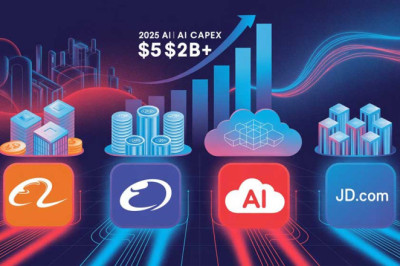
views
A recent case involving Deloitte and the Australian government has brought renewed scrutiny to the use of artificial intelligence (AI) in public sector consulting and contracts. Deloitte is refunding the government $440,000 after admitting its welfare compliance report contained major fabrication errors due to the use of generative AI tools that produced fake citations, fabricated quotes, and nonexistent academic references. This incident has become one of the most significant cases of AI accountability concerns in government consulting to date.
The Incident and Its Fallout
The Department of Employment and Workplace Relations confirmed Deloitte’s admission and refund following an investigation prompted by the discovery of fabricated details by a University of Sydney academic. The errors included non-existent books and papers and false quotes attributed to a Federal Court Justice involved in Australia's Robodebt case. Deloitte’s correction disclosed using a "generative artificial intelligence (AI) large language model (Azure OpenAI GPT-4o)" to fill gaps in documentation, without adequate human oversight or transparency.
Labor Senator Deborah O'Neill sharply criticized Deloitte for employing AI without disclosure, emphasizing the need for contracting entities to verify expertise and avoid undisclosed AI use. While the Department noted the core report conclusions remained unchanged, the incident raised alarm bells about the reliability and oversight of AI-generated content in government work.
Broader Implications for AI Governance in Public Sector
This case highlights the growing challenges governments face as consulting firms rapidly integrate AI tools into their work without sufficient controls. Recent studies suggest many employees encounter AI-generated content requiring significant corrections, raising concerns about efficiency and reliability.
The Australian government and other jurisdictions are increasingly adopting AI-related frameworks and policies to address these risks, focusing on transparency, accountability, and ethical use. For example, the National Framework for Assurance of Artificial Intelligence in Government stresses the need for clear accountabilities, transparency of data, and rigorous performance testing throughout AI system lifecycles. Ensuring open documentation and human oversight are seen as critical to maintaining public trust and managing risks associated with AI use in procurement and public services.
The Path Forward: Transparency, Oversight, and Ethical AI Use
Experts stress that AI use in government must be accompanied by transparent disclosure and evaluation mechanisms. Agencies and contracting bodies should demand clarity on AI's role in any deliverables and ensure that qualified experts validate outputs. Regular independent audits of AI systems and their results can help detect bias, errors, and fabrications early.
Policymakers advocate for maintaining competitive, fair procurement processes, preventing AI from creating unfair advantages or barriers for smaller firms. Transparency in AI-enabled contract analysis not only improves efficiency but also serves as a foundation of trustworthiness and accountability in public sector decision-making.
The Deloitte incident serves as a cautionary tale that underscores the necessity for rigorous AI governance frameworks and ongoing oversight, especially as governments increasingly rely on AI technologies for critical analysis and policymaking. Responsible and transparent AI adoption is essential to harness its benefits while safeguarding the integrity of public administration.
This article addresses government demands for AI transparency, the Deloitte AI fabrication incident, academic discoveries of AI errors, and the industry-wide challenges with AI oversight in government consulting, highlighting current practices and recommendations for ethical AI use in public sector contracts and reports.publicsectorexperts+3
- https://www.publicsectorexperts.com/blog/public-sector-news-insights-and-analysis-1/leveraging-ai-for-analyzing-public-sector-contracts-1032
- https://en.wikipedia.org/wiki/Help:Your_first_article
- https://techpolicy.press/ai-accountability-starts-with-government-transparency
- https://writesonic.com/instant-article-writer
- https://www.sparke.com.au/insights/the-impact-of-ai-on-contracts-and-procurement/
- https://www.grammarly.com/ai/ai-writing-tools/article-writer
- https://www.oecd.org/en/publications/governing-with-artificial-intelligence_795de142-en/full-report/ai-in-public-procurement_2e095543.html
- http://articlegenerator.org
- https://www.gov.uk/government/publications/ppn-017-improving-transparency-of-ai-use-in-procurement/ppn-017-improving-transparency-of-ai-use-in-procurement-html
- https://www.canva.com/templates/s/article/




















Comments
0 comment